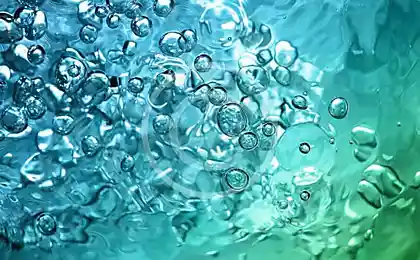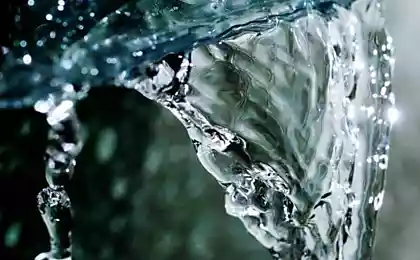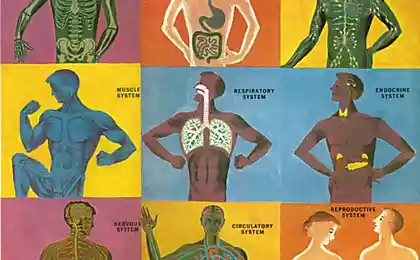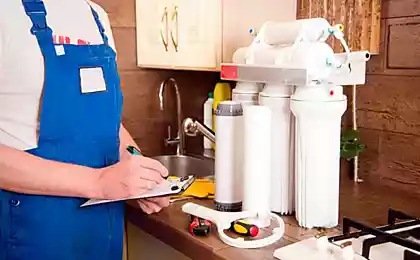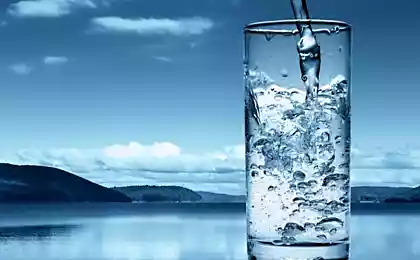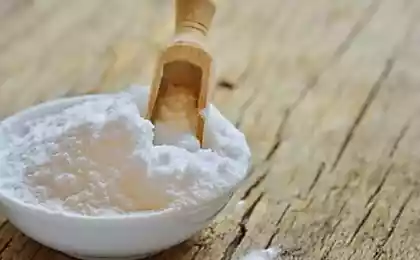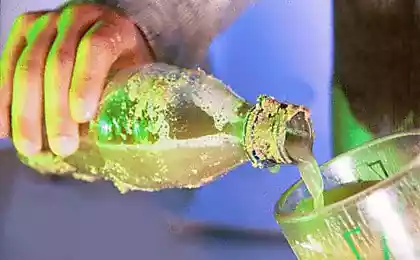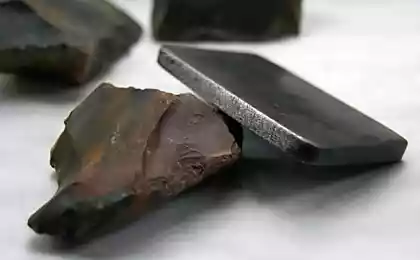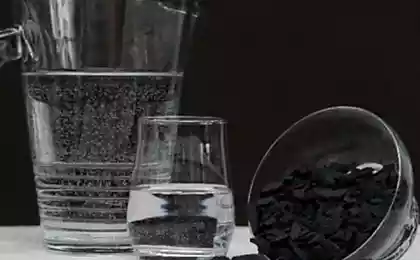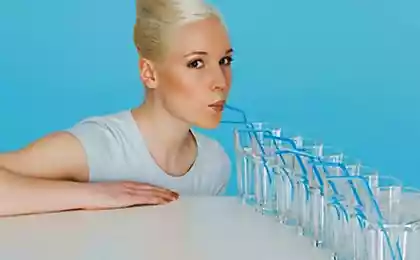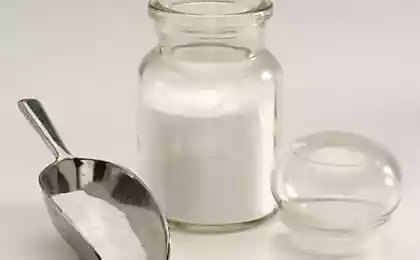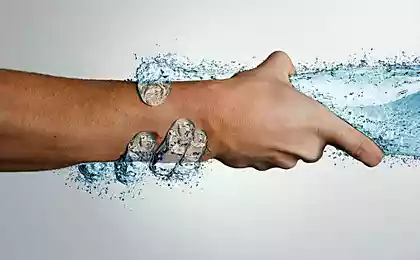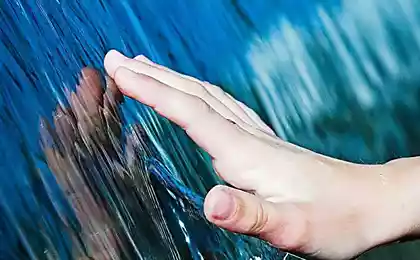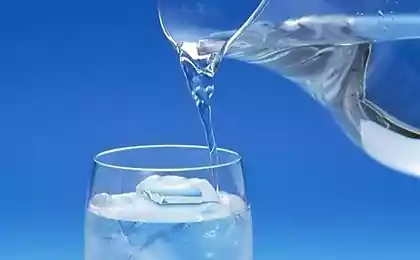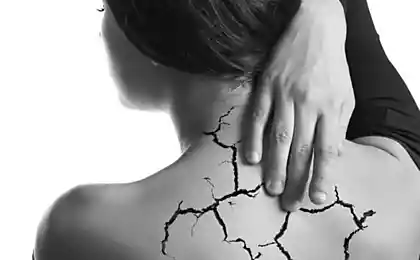638
How to know whether you are drinking enough water
Every day, the body loses water in urine and through sweat glands, even when you're not working up a sweat. As a result, you constantly need to replenish the fluid, and soft drinks for this purpose are not taken into account.
Coffee and a sweet soda, usually a lot of caffeine, which acts as a diuretic, dehydrating you. What was worse, fruit juices, soda, and other sweetened beverages are primary sources of fructose, which only harms the health.
The same applies to artificially sweetened drinks. So the main thing is to drink clean water.
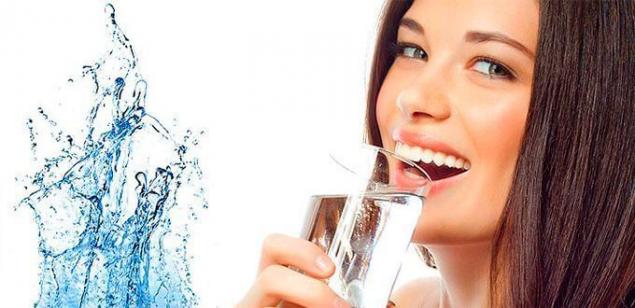
But how much water you need each day? In an often quoted recommendations indicated 8 glasses of water a day, but for some, it may be too much and others too little.
In addition, the water demand may change from day to day, depending on a number of factors such as your activity level and weather conditions.
Fortunately, the body has a mechanism that tells you when you need to replenish the water. It's called thirst.
And there's a simple way to understand whether you need to drink more water even if you don't feel thirsty.
Signs that the body needs water
When the body loses one to two percent of the total water content, it signals about their needs, causing a feeling of thirst. Thirst tells you how much water you need is a great way to make sure you day by day to meet their needs.
But remember that when you feel it, you may already be dehydrated. Most research shows that almost 2/3 of us are dehydrated and we need to drink more water.
This is especially true for the elderly.
But, besides these, good to know about other, more subtle signals that the body sends, indicating that you need to drink more water.
These include:
Moreover, another good practical method is to pay attention to the color of the urine.
Water should drink enough so that urine was a light yellow color.
Dark urine is a sign that the kidneys retain fluid to maintain body functions, which include elimination of toxins. In the result, the urine looks concentrated and dark. You can also come up less often to urinate – for the same reason.
Because with age the thirst mechanism usually becomes less effective, older people should pay more attention to the color of your urine to ensure adequate water consumption.
Note that the Riboflavin (vitamin B2, which is included in most multivitamins) stains the urine bright, almost fluorescent yellow. So, if you're taking supplements containing B2, to focus on the color of urine can be difficult.
On the consumption of water can be judged by frequency of urination. A healthy person urinates on average about seven to eight times a day. If little urine or you have not urinated for several hours – it also indicates that you drink enough.
Symptoms of chronic dehydration
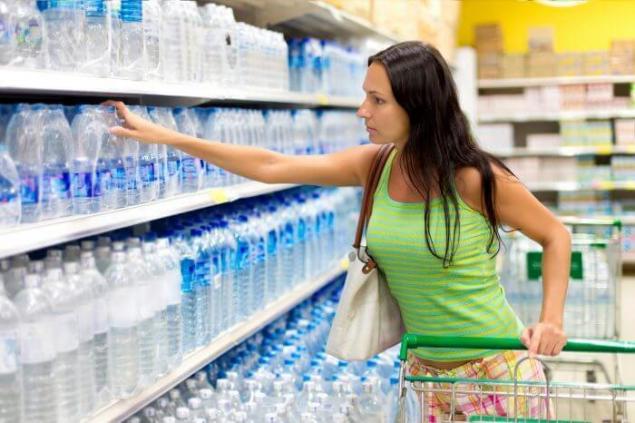
Drinking water will help flush out toxins, but the more unfiltered water you drink, the more pollutants you consume.
Tap water contains many harmful contaminants, including fluoride, disinfection by-products, chemicals, radiation, heavy metals, and pharmaceuticals.
Also, be careful while bathing in unfiltered water, because breathing in a hot shower, you can absorb much more toxins than if they drank the tap water all day.
Last year, Federal scientists reported that one third of the water samples collected in 25 municipal aquaculture USA, were found traces of 18 uncontrolled contaminants, including perfluorinated compounds like PFOA. Thus, in addition to something to try enough to drink, it is very important and what kind of water you drink.
Many instinctively reach for bottled water, but there are many reasons why you should refuse this option. Drinking from plastic bottles poses serious health risks due to exposure to industrial chemicals such as bisphenol A and bisphenol S (BPA/BFS), and the phthalates that come in the contents of the bottle from plastic.
BFA and BFS – this oestrogen mimicking chemical linked to reproductive defects, learning difficulties and behavioral problems, immune dysfunction, cancer of the prostate and mammary glands. Phthalates also destroy the endocrine system – they are associated with a wide range of disorders of development and reproduction, as well as liver cancer.
Bottled water is 1.9 times more expensive than tap water and, in addition, may be subject to additional processing. Studies have shown that 40 percent of bottled water is actually regular tap water, which might not even passed additional filtering.
While protection Agency United States environmental protection Agency (EPA) requires to check the presence of contaminants in public water supply networks several times a day, Management on sanitary inspection behind quality of foodstuff and medicines USA (FDA) requires that private companies bottling water in bottles, checked for contaminants only once a week, once a year or every four years depending on contamination.
In the result of an independent analysis conducted by the Working group on environmental protection (EWG) in 2011 revealed 38 low-level contaminants in bottled water. In the production of each of the 10 tested brands contained an average of eight chemicals. Disinfection by-products, caffeine, tylenol, nitrate, industrial chemicals, arsenic and bacteria – all of this was discovered. Fluoride is also usually present in tap water and filtered water in bottles.
On the labels of many brands of bottled water still indicate the addition of fluoride, therefore, if you drink bottled water, make sure it has no fluoride.
And last but not less important: plastic bottles cause huge environmental problems due to the enormous amount of plastic waste they create; the lack of infrastructure for plastic recycling; as well as the amount of fuel required for their production.
The use of "living water" for health
The solution to all these problems with health and environment is to minimize the consumption of water in plastic bottles or discarded. Your most economical and ecological option is to purchase and install a home water filter. And instead of plastic bottles to use glass, from which harm to the environment far less.
But the best water course from natural springs.
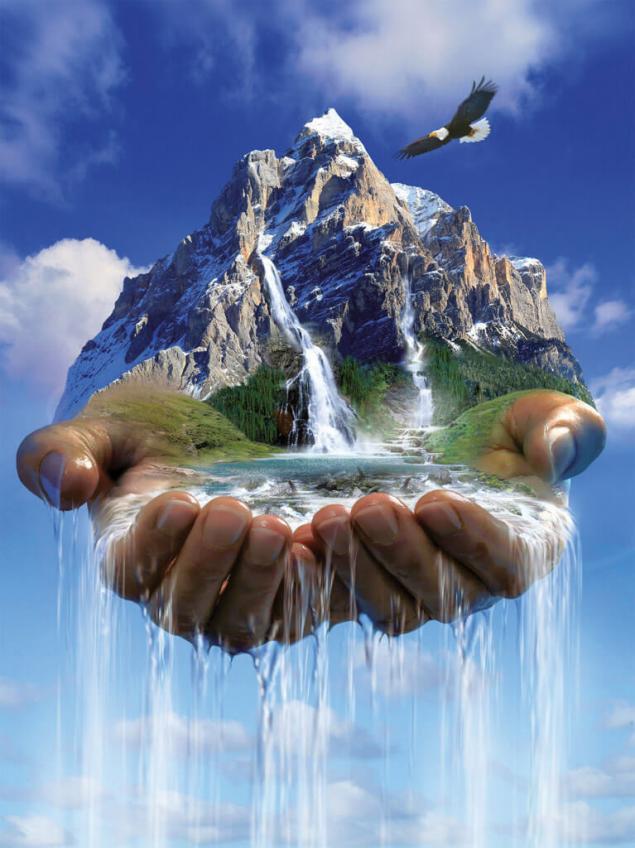
I do not recommend drinking distilled water. It is too acidic and is not recommended for prolonged use, although it may be useful for temporary detoxification. The ideal water pH should be from 6.5 to 7.5, i.e. neutral. You need pure water – pure, pH-balanced and "alive".
Is the water from mountain springs. It is not only a useful pH, but also the "structure", which is not yet fully understood.
I once interviewed Dr. Gerald Pollack on this question. He is one of the leading scientists in the world, if we talk about the understanding of the physics of water and its significance for health. In his book "the Fourth state of water, in addition to solid, liquid and gas" contained only groundbreaking theory of the fourth state of water.
The fourth state of water, in short – living water. It is called ZZ-water – "ZZ" in this case means "exclusion zone" with a negative charge. This water, as the battery can hold and deliver energy. This is the water contained in the cells; the extracellular tissue filled ZZ-water, and this is why, in his opinion, to be healthy, so it is important to drink structured water.
I almost always drink only water treated by the vortex method, since I'm a big fan of Viktor Schauberger, which did much pioneering work in this area about a century ago. Dr. Pollack confirms that by creating a vortex in a glass of water, you give it more energy, thereby increasing PO. Water from deep sources, e.g., deep springs is a great choice, as ZZ-water is also created under pressure.
And an additional advantage is that the spring water is usually free – just don't forget to grab my Bank. I recommend using glass and not plastic containers.
Useful additives for flavoring
Given the fact that more and more people realize the danger of sweet drinks health drinks industry developed a completely new direction "useful" beverages — so-called "functional" and improved water enriched in everything – from vitamins and minerals to electrolytes, oxygen, fiber and even protein.
But if you more carefully look at the label, you will see a lot of questionable ingredients, many of which can wreak havoc on hormones, upsetting metabolism and other physiological processes. Many of them are overloaded with sugar and, therefore, no better than sugary sodas.
For those occasions when you want some flavor, just add water a little fresh lemon juice or lime. As noted in the article, the Huffington Post, water with lemon has a dozen of health properties – from helping with constipation, and bladder infections to strengthen the immune system, cleanse the liver and improve the skin condition.
Interesting refreshing taste add sliced cucumbers.
If you want to sweeten, add natural steviaor Luo Han Guo, which are among the safest of the sugar substitutes.
Or just add a drop or two of natural peppermint extract or a few crushed mint leaves from your garden.
If you need a "sports drink" electrolyte type, try coconut water – a rich natural source of potassium and electrolytes. Just look for water without additives. Or take fresh young coconut and cook it yourself.
For optimum health you need clean water in sufficient quantity
There is no doubt that for optimum health you need clean water. Just replace all sweetened beverages in the bottle that you treat yourself well, to clean water – this will have a lasting effect on your health and on your weight. But the amount of water you need to adjust based on their individual circumstances.
Don't forget to listen to your body.
Author: Dr. Joseph Mercola
The materials are for informational purposes. Remember, self-life-threatening, for advice regarding the use of any medicines and methods of treatment, contact your doctor.
P. S. And remember, only by changing their consumption — together we change the world! ©
Source: russian.mercola.com/sites/articles/archive/2017/02/21/%D0%BF%D0%B8%D1%82%D1%8C-%D0%B4%D0%BE%D1%81%D1%82%D0%B0%D1%82%D0%BE%D1%87%D0%BD%D0%BE-%D0%B2%D0%BE%D0%B4%D1%8B.aspx
Coffee and a sweet soda, usually a lot of caffeine, which acts as a diuretic, dehydrating you. What was worse, fruit juices, soda, and other sweetened beverages are primary sources of fructose, which only harms the health.
The same applies to artificially sweetened drinks. So the main thing is to drink clean water.

But how much water you need each day? In an often quoted recommendations indicated 8 glasses of water a day, but for some, it may be too much and others too little.
In addition, the water demand may change from day to day, depending on a number of factors such as your activity level and weather conditions.
Fortunately, the body has a mechanism that tells you when you need to replenish the water. It's called thirst.
And there's a simple way to understand whether you need to drink more water even if you don't feel thirsty.
Signs that the body needs water
When the body loses one to two percent of the total water content, it signals about their needs, causing a feeling of thirst. Thirst tells you how much water you need is a great way to make sure you day by day to meet their needs.
But remember that when you feel it, you may already be dehydrated. Most research shows that almost 2/3 of us are dehydrated and we need to drink more water.
This is especially true for the elderly.
But, besides these, good to know about other, more subtle signals that the body sends, indicating that you need to drink more water.
These include:
- Fatigue and/or mood swings.
- The hunger, despite the fact that you have recently eaten.
- Back pain or joint pain.
- Dull, dry skin and/or wrinkles.
- Infrequent urination; dark, concentrated urine and/or constipation.
Moreover, another good practical method is to pay attention to the color of the urine.
Water should drink enough so that urine was a light yellow color.
Dark urine is a sign that the kidneys retain fluid to maintain body functions, which include elimination of toxins. In the result, the urine looks concentrated and dark. You can also come up less often to urinate – for the same reason.
Because with age the thirst mechanism usually becomes less effective, older people should pay more attention to the color of your urine to ensure adequate water consumption.
Note that the Riboflavin (vitamin B2, which is included in most multivitamins) stains the urine bright, almost fluorescent yellow. So, if you're taking supplements containing B2, to focus on the color of urine can be difficult.
On the consumption of water can be judged by frequency of urination. A healthy person urinates on average about seven to eight times a day. If little urine or you have not urinated for several hours – it also indicates that you drink enough.
Symptoms of chronic dehydration
- Digestive disorders such as heartburn and constipation.
- Confusion and/or anxiety.
- A urinary tract infection.
- Premature aging.
- High levels of cholesterol.

Drinking water will help flush out toxins, but the more unfiltered water you drink, the more pollutants you consume.
Tap water contains many harmful contaminants, including fluoride, disinfection by-products, chemicals, radiation, heavy metals, and pharmaceuticals.
Also, be careful while bathing in unfiltered water, because breathing in a hot shower, you can absorb much more toxins than if they drank the tap water all day.
Last year, Federal scientists reported that one third of the water samples collected in 25 municipal aquaculture USA, were found traces of 18 uncontrolled contaminants, including perfluorinated compounds like PFOA. Thus, in addition to something to try enough to drink, it is very important and what kind of water you drink.
Many instinctively reach for bottled water, but there are many reasons why you should refuse this option. Drinking from plastic bottles poses serious health risks due to exposure to industrial chemicals such as bisphenol A and bisphenol S (BPA/BFS), and the phthalates that come in the contents of the bottle from plastic.
BFA and BFS – this oestrogen mimicking chemical linked to reproductive defects, learning difficulties and behavioral problems, immune dysfunction, cancer of the prostate and mammary glands. Phthalates also destroy the endocrine system – they are associated with a wide range of disorders of development and reproduction, as well as liver cancer.
Bottled water is 1.9 times more expensive than tap water and, in addition, may be subject to additional processing. Studies have shown that 40 percent of bottled water is actually regular tap water, which might not even passed additional filtering.
While protection Agency United States environmental protection Agency (EPA) requires to check the presence of contaminants in public water supply networks several times a day, Management on sanitary inspection behind quality of foodstuff and medicines USA (FDA) requires that private companies bottling water in bottles, checked for contaminants only once a week, once a year or every four years depending on contamination.
In the result of an independent analysis conducted by the Working group on environmental protection (EWG) in 2011 revealed 38 low-level contaminants in bottled water. In the production of each of the 10 tested brands contained an average of eight chemicals. Disinfection by-products, caffeine, tylenol, nitrate, industrial chemicals, arsenic and bacteria – all of this was discovered. Fluoride is also usually present in tap water and filtered water in bottles.
On the labels of many brands of bottled water still indicate the addition of fluoride, therefore, if you drink bottled water, make sure it has no fluoride.
And last but not less important: plastic bottles cause huge environmental problems due to the enormous amount of plastic waste they create; the lack of infrastructure for plastic recycling; as well as the amount of fuel required for their production.
The use of "living water" for health
The solution to all these problems with health and environment is to minimize the consumption of water in plastic bottles or discarded. Your most economical and ecological option is to purchase and install a home water filter. And instead of plastic bottles to use glass, from which harm to the environment far less.
But the best water course from natural springs.

I do not recommend drinking distilled water. It is too acidic and is not recommended for prolonged use, although it may be useful for temporary detoxification. The ideal water pH should be from 6.5 to 7.5, i.e. neutral. You need pure water – pure, pH-balanced and "alive".
Is the water from mountain springs. It is not only a useful pH, but also the "structure", which is not yet fully understood.
I once interviewed Dr. Gerald Pollack on this question. He is one of the leading scientists in the world, if we talk about the understanding of the physics of water and its significance for health. In his book "the Fourth state of water, in addition to solid, liquid and gas" contained only groundbreaking theory of the fourth state of water.
The fourth state of water, in short – living water. It is called ZZ-water – "ZZ" in this case means "exclusion zone" with a negative charge. This water, as the battery can hold and deliver energy. This is the water contained in the cells; the extracellular tissue filled ZZ-water, and this is why, in his opinion, to be healthy, so it is important to drink structured water.
I almost always drink only water treated by the vortex method, since I'm a big fan of Viktor Schauberger, which did much pioneering work in this area about a century ago. Dr. Pollack confirms that by creating a vortex in a glass of water, you give it more energy, thereby increasing PO. Water from deep sources, e.g., deep springs is a great choice, as ZZ-water is also created under pressure.
And an additional advantage is that the spring water is usually free – just don't forget to grab my Bank. I recommend using glass and not plastic containers.
Useful additives for flavoring
Given the fact that more and more people realize the danger of sweet drinks health drinks industry developed a completely new direction "useful" beverages — so-called "functional" and improved water enriched in everything – from vitamins and minerals to electrolytes, oxygen, fiber and even protein.
But if you more carefully look at the label, you will see a lot of questionable ingredients, many of which can wreak havoc on hormones, upsetting metabolism and other physiological processes. Many of them are overloaded with sugar and, therefore, no better than sugary sodas.
For those occasions when you want some flavor, just add water a little fresh lemon juice or lime. As noted in the article, the Huffington Post, water with lemon has a dozen of health properties – from helping with constipation, and bladder infections to strengthen the immune system, cleanse the liver and improve the skin condition.
Interesting refreshing taste add sliced cucumbers.
If you want to sweeten, add natural steviaor Luo Han Guo, which are among the safest of the sugar substitutes.
Or just add a drop or two of natural peppermint extract or a few crushed mint leaves from your garden.
If you need a "sports drink" electrolyte type, try coconut water – a rich natural source of potassium and electrolytes. Just look for water without additives. Or take fresh young coconut and cook it yourself.
For optimum health you need clean water in sufficient quantity
There is no doubt that for optimum health you need clean water. Just replace all sweetened beverages in the bottle that you treat yourself well, to clean water – this will have a lasting effect on your health and on your weight. But the amount of water you need to adjust based on their individual circumstances.
Don't forget to listen to your body.
- Thirst is an obvious signal that it is time to replenish the fluid.
- Fatigue and gloom can also indicate that you need more water.
- But the best way to estimate how much you need to water is to monitor the color of urine and frequency of urination. On average, a healthy person goes to the bathroom 7-8 times a day, and urine color should be light, pale yellow.published
Author: Dr. Joseph Mercola
The materials are for informational purposes. Remember, self-life-threatening, for advice regarding the use of any medicines and methods of treatment, contact your doctor.
P. S. And remember, only by changing their consumption — together we change the world! ©
Source: russian.mercola.com/sites/articles/archive/2017/02/21/%D0%BF%D0%B8%D1%82%D1%8C-%D0%B4%D0%BE%D1%81%D1%82%D0%B0%D1%82%D0%BE%D1%87%D0%BD%D0%BE-%D0%B2%D0%BE%D0%B4%D1%8B.aspx
Why are we afraid of the light positions and honest look at relationships
If you failed, it means you've gone through someone else's door
